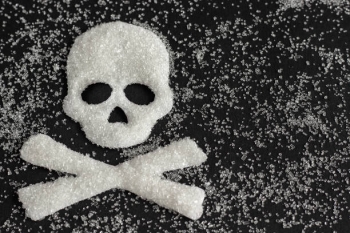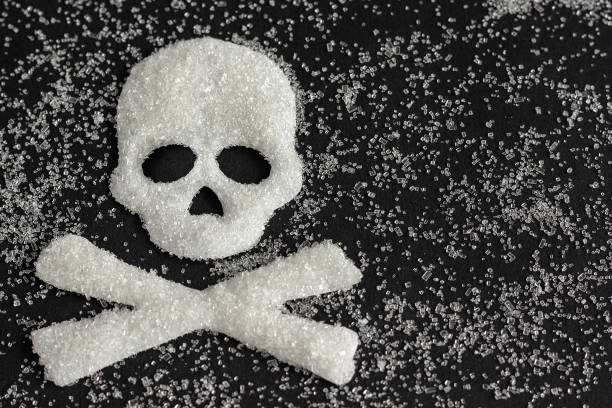
.png) Aarti
Aarti

Across the globe, a great deal has been researched, written and regularly debated about sugar -- a significant percentage of which is consumed in foods, beverages, energy drinks, juices etc.
Is sugar the prime suspect in poor health?
Well, last month, social media influencer Revant Himatsingka had reportedly posted a critical review in a minute-long video on his Instagram where he had criticised the endorsement of popular beverage Bournvita as a “health drink”.
Soon after his video went viral, with a whopping 12 million views, Mondelez India International, the country arm of Bournvita, asserted on their Instagram that Bournvita contains nutrients -- namely Vitamin A, C, D, Iron, Zinc, Copper and Selenium which help build immunity -- which have been part of their formulation for several years. The company further said that Bournvita is best consumed with a glass of 200 ml of hot or cold milk as highlighted on the pack. Every serving of 20 grams of Bournvita has 7.5 grams of added sugar, which is approximately one and a half teaspoons, which is much less than the daily recommended intake limits of sugar for children.
What we know so far is that the company thereafter issued a legal notice to Revant after which he deleted the said Instagram post and also apologised. More recently, the National Commission for Protection of Child Rights is said to have sought a response from Mondelez on the allegations raised about Bournvita and also withdraw its misleading advertisement.
The US tops the 5 biggest consumers of sugar on the globe with a per capita sugar consumption of 126.4 grams daily, followed by Germany (102.9 grams), The Netherlands (102.5 grams), Ireland (96.7 grams) and Australia (60 grams). World over, countries are finding ways and means to deal with the sugar content in processed food. Free sugars are those added to food (e.g., sucrose - table sugar glucose) or those naturally present in honey, syrups and unsweetened fruit juices, but exclude lactose in milk and milk products.
For instance, in 2015, the Scientific Advisory Committee on Nutrition (an independent body of expert nutritionists) advised the Government in the United Kingdom to halve the recommended intake of free sugars in order to help address the growing obesity and diabetes crises and to reduce the risk of tooth decay. SACN recommended free sugars should not account for more than 5 percent of daily energy intake. This is, 19 grams or 5 sugar cubes for children aged 4 to 6; 24 grams or 6 sugar cubes for children aged 7 to 10; 30 grams or 7 sugar cubes for 11 years and over, based on average population diets.
According to the American Heart Association’s recommendations for sugar intake, while men should consume no more than 9 teaspoons (36 grams or 150 calories) of added sugar per day, women mustn’t exceed 6 teaspoons (25 grams or 100 calories) per day. The per capita sugar consumption in India at 19 kg/year in 2020 (from 4.8 kg/year in 1960-61) is much lower than the world average of 23 kg.
In India, any food business, meaning any undertaking, whether for profit or not and whether public or private, carrying out any of the activities related to any stage of manufacture, processing, packaging, storage, transportation, distribution of food, import and includes food services, catering services, sale of food or food ingredients have to comply with the Food Safety and Standards (Advertising and Claims) Regulations, 2018.
Notably in respect of nutrition claims for sugar under the said Regulations, any food product which claims to contain low sugar means the product ought to not contain more than 5 grams of sugar per 100 grams for solids or 2.5 grams of sugar per 100 ml for liquids. Similarly, free sugar means the product ought to not contain more than 0.5 grams of sugar per 100 grams for solids or 100 ml for liquids.
So, how to reduce the consumption of sugar?
According to WHO, regular consumption of sugar-sweetened beverages (SSBs) including soft drinks, flavoured milks, energy drinks, vitamin waters, fruit juices and sweetened iced teas, is associated with an increased risk of dental cavities, type 2 diabetes, weight gain and obesity in both children and adults, heart disease, stroke and cancer. WHO’s first-ever global tax manual for SSBs, released last December states that taxes on SSBs can be a powerful tool to promote health because they save lives and prevent disease, while advancing health equity and mobilizing revenue for countries that could be used to realize universal health coverage. It can also encourage companies to reformulate their products to reduce sugar content.
A one-time global SSB tax increase that raised prices 50 percent could generate additional revenues of US$1.4 trillion over 50 years. While some 85 countries world-wide implement some type of taxation on SSBs, such initiatives in Mexico, South Africa, and the United Kingdom have been successful. For instance, WHO found that a 10 percent tax on SSBs produces a significant 15.9 percent reduction in taxed beverage purchases.
What’s the way forward?
At the macro level, there are a number of ways through which the consumption of added sugar in processed foods can be reduced if the consumer is educated through front-of-the pack labelling, clearly highlighting its health consequences. Notably the social influencer market in India (which is growing with a compound rate of about 19-20 percent and valued at Rs 1,275 crore currently and expected to rise to Rs 2,800 crore by 2025) can also be tapped.
To curb misleading advertisements as well as protect the interests of consumers, the Government of India, this January, notified the guidelines applicable to social media influencers which makes it mandatory for them to disclose their ‘material’ interest in endorsing products and services. For misleading advertisements, under the Consumer Protection Act 2019, the Central Consumer Protection Authority can impose a penalty of up to Rs 10 lakh on manufacturers, advertisers and endorsers. For subsequent offences, the penalty can go up to Rs 50 lakh. Besides, the endorser of a misleading advertisement can be banned from making any endorsement for up to 1 year and for subsequent contravention, the prohibition can extend up to 3 years.
At an individual level, for the sake of our health, we need to ponder, how little sugar is still too much?